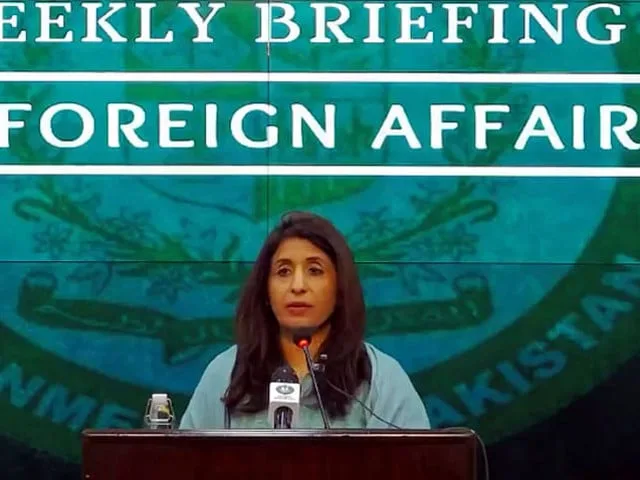Indian Prime Minister Narendra Modi marked the 25th anniversary of the Kargil conflict with strong statements against Pakistan, accusing it of using terrorism to advance its strategic interests. Speaking at the Kargil War Memorial in Dras, Ladakh, Modi lauded the valor of Indian soldiers and emphasized that terrorism and proxy wars would be crushed with full force. “Falsehood and terror were brought down to their knees by truth in the 1999 war,” Modi declared, noting that Pakistan’s attempts to destabilize India would fail.
Addressing the masters of terror directly, Modi asserted, “Your nefarious intentions will never succeed.” He praised the Indian armed forces for their exemplary courage during the Kargil War, stating, “In Kargil, we not only won the war but also presented an incredible example of truth, restraint, and strength.” Modi’s rhetoric was clear: India would not tolerate any form of terrorism and would defend its sovereignty robustly.
The Kargil conflict, fought over three months in 1999, was a significant military engagement between the two nuclear-armed neighbors. The Indian Army, fighting in harsh weather conditions on the icy heights of Dras, Kargil, and Batalik sectors, announced the successful culmination of Operation Vijay on July 26, 1999, declaring victory over Pakistan.
Pakistan’s Rebuttal and Call for Peace
In response to Modi’s remarks, Pakistan’s Foreign Office criticized the Indian Prime Minister’s “rhetorical statements” and accused him of undermining regional peace. The Foreign Office asserted, “Bravado and jingoism are counter-productive for the resolution of long-standing disputes between Pakistan and India, especially the core dispute of Jammu and Kashmir.” Pakistan emphasized that such statements could not deflect international attention from India’s “heavy-handed approach” to suppressing the struggle of the Kashmiri people.
Highlighting Pakistan’s readiness to defend its sovereignty, the Foreign Office referenced the February 2019 incident where an Indian fighter jet was downed in response to an aerial incursion. Despite these tensions, Pakistan reiterated its commitment to promoting peace and stability in the region. “While Pakistan is ready to counter India’s aggressive actions, it remains committed to promoting peace and stability in the neighborhood,” the statement concluded.
Pakistan has consistently denied India’s accusations of supporting militant groups in Kashmir, stating that it only provides diplomatic and moral support to Kashmiris seeking self-determination. The Foreign Office’s statement underscored this position, calling for a resolution of disputes through peaceful means.
Historical Context and Recent Strains
The strained relations between India and Pakistan have a long history, marked by three wars and numerous skirmishes, predominantly over the disputed region of Kashmir. The most recent escalation in tensions occurred in August 2019, when India downgraded diplomatic ties after New Delhi revoked Kashmir’s special status and split it into two federally administered territories. This move was followed by a series of tit-for-tat actions, further straining the already fragile relationship.
The situation worsened after a suicide bombing of an Indian military convoy in Kashmir was linked to Pakistan-based militants, leading India to conduct an airstrike on what it claimed was a militant base in Pakistan. This incident heightened the hostilities, with both nations engaging in aggressive rhetoric and military posturing.
Read More: Lahore High Court Overturns Imran Khan’s Remand in May 9 Cases
Despite these challenges, there have been moments of diplomatic engagement. In June 2024, Pakistan welcomed the adoption of a resolution by the Indian National Assembly urging federal and provincial governments to ensure the safety and security of all citizens, including religious minorities. This move was seen as a step towards improving relations, although significant issues remain unresolved.
As India and Pakistan continue to navigate their complex relationship, the need for diplomatic dialogue and peaceful resolution of disputes becomes increasingly critical. While strong statements and military posturing are part of the ongoing narrative, both nations have expressed a commitment to safeguarding their sovereignty and promoting regional stability. Moving forward, the focus must shift towards constructive engagement, addressing underlying issues, and fostering a climate of mutual respect and cooperation.














